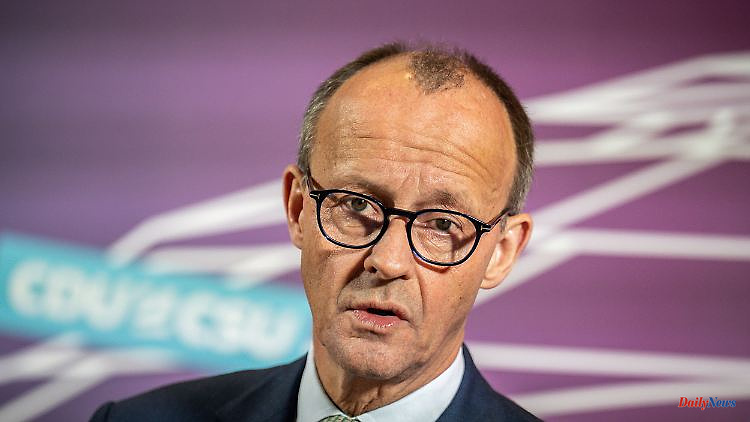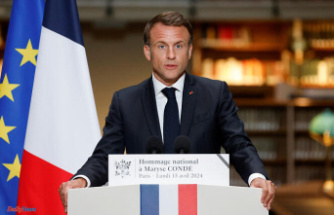In order to save the citizens' money, the traffic light is taking big steps towards the Union. CDU leader Merz is satisfied and at the same time surprised at the far-reaching concessions. Chancellor Scholz hopes that the social reform will last for decades. Criticism comes only from the left.
Union faction leader Friedrich Merz expects after the compromise with the traffic light on citizen income with the consent of the Union-governed countries in the mediation committee of the Bundestag and Bundesrat. "I have no doubts about that," said the CDU chairman in Berlin when asked a question. "The coalition was very quick and - to my surprise - very largely willing to make compromises here," Merz said of the negotiations. The CDU leader rated the waiver of the planned six-month "time of trust" as the Union's greatest success. It has now been completely deleted, said Merz.
CSU regional group leader Alexander Dobrindt said that one did not want to anticipate the result of the mediation committee because there was the possibility of debates. "But we are preparing for the fact that we can then also make the decision on this result in the German Bundestag," he said, with a view to possible approval in the mediation committee. In the negotiations, the Union was able to "eliminate serious system errors in the Hartz IV update, which is misleadingly referred to as citizen money".
For Chancellor Olaf Scholz, the compromise that has now been found on citizen income should last for a long time. "We now want to decide on a major social reform, which will then describe the way in which job seekers are supported in Germany for decades," said Scholz at an "economic summit" of the "Süddeutsche Zeitung" in Berlin. That will also work.
Representatives of the traffic light factions of the SPD, Greens and FDP welcomed the compromise as a "good basis". "It's a viable compromise," said Katja Mast, the first parliamentary secretary of the SPD parliamentary group, at a spontaneous press conference in the Bundestag. It had previously become known from coalition circles that the government factions had agreed with the Union on compromises on the planned social reform. This Wednesday, the mediation committee of the Bundestag and Bundesrat is to discuss the disputed points and decide on the compromise that has been reached.
According to unanimous information from the Union and government factions, the preliminary compromise provides for further decisive changes to the original draft law. Among other things, there should be sanctions in the form of withdrawal of benefits from day one – without exceptions. The trust period of six months provided by the traffic light, during which there should be no reduction in performance in the event of breaches of duty, should be completely eliminated.
The waiting period with milder regulations, originally set for 24 months, should only be 12 months. According to the information, the Union side reduced the related assets from 60,000 euros to 40,000 euros. The more generous additional earnings limits during the receipt of the citizen's allowance - for example for affected young people who work part-time - should remain in place. The FDP in particular had insisted on this. FDP Vice President Johannes Vogel welcomed this part of the agreement.
The Greens parliamentary group leader Britta Haßelmann again emphasized that the standard rate increase for beneficiaries will come on January 1, 2023. It is also still the core of the reform not to place people in "any job" in the future, but to qualify them and get them permanent work. However, the Greens parliamentary group leader expressly regretted that the originally planned period of trust in the preliminary negotiations had been omitted.
Mast announced that Labor Minister Hubertus Heil would immediately submit the proposals to the mediation committee. She is confident that the basis can also guarantee a majority for the project in the Bundesrat. The aim is to get the citizen's income on the way as planned on January 1, 2023.
The left criticized the compromise on citizen income. Apart from an increase in the standard rate by 53 euros, there is almost nothing left of the reform, party leader Janine Wissler said on Tuesday in Berlin. She blamed the Union and the FDP for this.












